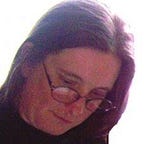The Third Plate: Field Notes on the Future of Food
“Starved of micronutrients, we will keep eating in the hope of attaining them”
- Book Title — The Third Plate: Field Notes on the Future of Food
- Author’s name — Dan Barber
- Publisher — Penguin Press
- Year of publication — 2014
It staggers me to consider how much I learned from this book. For instance, the wheat I know has an ancestor that was native to the prairie, and perennial with roots up to 22 feet deep. Consider that for a moment — roots were commonly 22 feet deep. That’s like…tree depth but on wheat! Now ponder the fact that in the rush to settle that same prairie, the native wheat was ripped up, cast aside, the land ploughed up and a different, annual breed of wheat was planted. Only this wheat had very short roots that did not grasp the soil sufficiently and was not drought resistant. When the drought of the1930’s came along, the prairies were screwed. And we did it to ourselves!
See, you don’t expect to learn this sort of thing in a book touted as being for “foodies”.
I also learned why everyone that grows even a single tomato plant in a pot should turn their back on chemical additives in their potting soil. And why we should support the smaller farmer who is running a CSA on a handful of acres. I learned how old-school thinking can produce ham that is in demand the world over, how the lack of micronutrients in the soil can affect a child living in the city, and so on. Honestly, there isn’t enough room to discuss all the great things I learned from this book. And I thought I was pretty well-schooled in soil, food and organic farming.
On some level, I knew but had apparently forgotten, that the lack of nutrition in our vegetables is linked to a lack of nutrients in the soil. A lack of nutrients in our meat, milk and eggs is connected to the lack of nutrients in the grass/fodder/feed we provide the animals we consume. If you think about it, it is basic science. Even computers are only as good as what we put into them, so why do we ignore this when it comes to animals? And how does all this relate to a growing trend of obesity?
“Starved of micronutrients, we will keep eating in the hope of attaining them” William Albrecht
If you are a foodie, read this book.
If you are a concerned parent who has never touched a food plant, you should read this book.
Heck, if you eat — at all — you should read this book.
Ignore the naysayers and make up your own mind. You’ll be glad you did.
